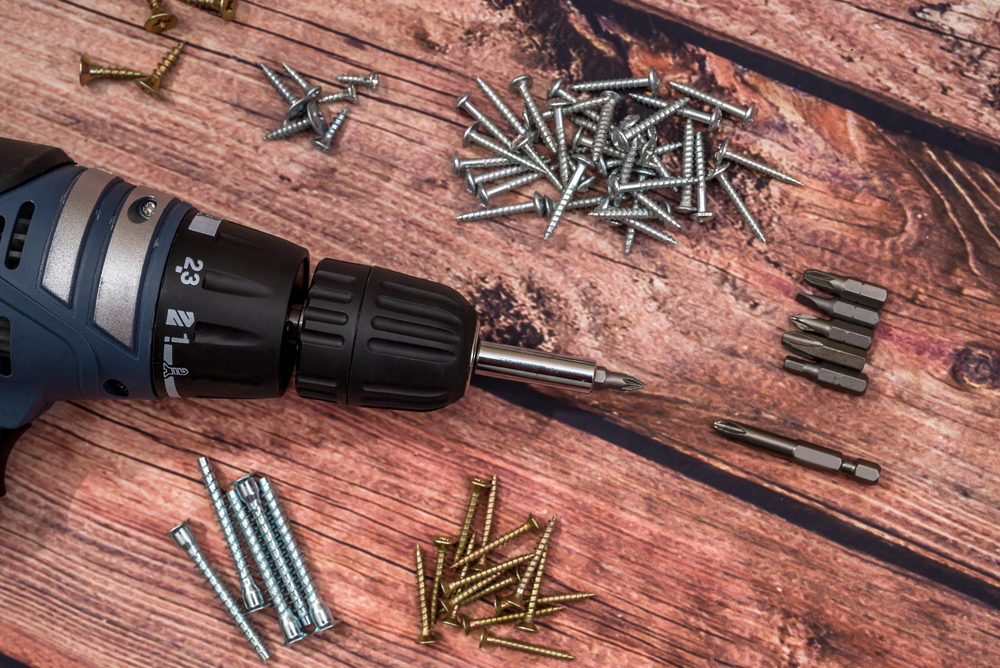Drill bits are tools that are used to create holes in a variety of materials, such as wood, metal, and plastic. They come in a variety of shapes, sizes, and materials, each of which is suited for specific types of drilling tasks. Cobalt and titanium are two materials that are commonly used to make drill bits.
Cobalt is a hard, lustrous, silver-gray metal that is known for its high melting point, strength, and corrosion resistance. It is often used in the manufacturing of high-speed steel drill bits, which are known for their durability and ability to drill through hard materials.
Titanium, on the other hand, is a lightweight, strong, corrosion-resistant metal that is known for its high strength-to-weight ratio. It is often used in the manufacturing of titanium nitride (TiN) coated drill bits, which are known for their durability and ability to drill through a variety of materials.
Contents
Comparison of cobalt and titanium drill bits
Hardness and durability
Both cobalt and titanium drill bits are known for their durability and ability to withstand wear and tear. Cobalt drill bits are generally harder and more durable than titanium drill bits, but titanium drill bits are still quite durable and can hold their own against cobalt drill bits in many applications.
Cost
Cobalt drill bits are generally more expensive than titanium drill bits due to the cost of the raw materials and the manufacturing process. However, titanium drill bits are still relatively expensive compared to other types of drill bits.
Heat resistance
Both cobalt and titanium drill bits are known for their heat resistance, but cobalt drill bits are generally more resistant to heat due to their higher melting point. This makes them well-suited for drilling through materials that generate a lot of heat, such as stainless steel.
Corrosion resistance
Both cobalt and titanium drill bits are resistant to corrosion, but cobalt drill bits are generally more resistant due to their high melting point and strength. This makes them well-suited for use in humid or wet environments.
Magnetism
Cobalt drill bits are magnetic due to their high iron content, while titanium drill bits are non-magnetic. This can be an important consideration when drilling through materials that are sensitive to magnetism, such as certain types of electronics.
Availability
Cobalt drill bits are widely available and can be purchased from most hardware stores and online retailers. Titanium drill bits are also widely available, but they may be harder to find in some areas.
Advantages of cobalt drill bits
Hardness and durability
As mentioned earlier, cobalt drill bits are known for their hardness and durability. They are able to withstand high levels of wear and tear, making them well-suited for drilling through hard materials such as stainless steel and cast iron.
Heat resistance
Cobalt drill bits are highly resistant to heat due to their high melting point, making them well-suited for drilling through materials that generate a lot of heat.
Corrosion resistance
Cobalt drill bits are resistant to corrosion due to their high melting point and strength, making them well-suited for use in humid or wet environments.
Magnetism
Cobalt drill bits are magnetic due to their high iron content, which can be useful in certain applications where magnetism is needed.
Advantages of titanium drill bits
Titanium drill bits have a number of advantages over other types of drill bits:
Hardness and durability
Although not as hard and durable as cobalt drill bits, titanium drill bits are still quite durable and able to withstand wear and tear. They are well-suited for drilling through a variety of materials, including wood, plastic, and metal.
Cost
Titanium drill bits are generally less expensive than cobalt drill bits, making them a more affordable option for those on a budget.
Heat resistance
Like cobalt drill bits, titanium drill bits are resistant to heat and able to withstand high temperatures. This makes them well-suited for drilling through materials that generate a lot of heat.
Corrosion resistance
Titanium drill bits are resistant to corrosion, making them well-suited for use in humid or wet environments.
Lightweight
Due to their high strength-to-weight ratio, titanium drill bits are much lighter than cobalt drill bits, which can be an advantage when working on projects that require a lot of drilling.
Non-magnetic
Titanium drill bits are non-magnetic, which can be an advantage when drilling through materials that are sensitive to magnetism, such as certain types of electronics.
Overall, titanium drill bits offer a combination of durability, cost-effectiveness, and corrosion resistance, making them a good choice for a wide range of drilling applications.
FAQ’s On Cobalt Vs. Titanium Drill Bits
What are cobalt and titanium drill bits made of?
Cobalt drill bits are made of high-speed steel that contains a high percentage of cobalt. Titanium drill bits are made of high-speed steel that has been coated with a layer of titanium nitride (TiN).
Are cobalt and titanium drill bits the same price?
No, cobalt drill bits are generally more expensive than titanium drill bits due to the cost of the raw materials and the manufacturing process.
Are cobalt and titanium drill bits both durable?
Both cobalt and titanium drill bits are known for their durability, but cobalt drill bits are generally harder and more durable than titanium drill bits.
Are cobalt and titanium drill bits both heat resistant?
Both cobalt and titanium drill bits are known for their heat resistance, but cobalt drill bits are generally more resistant to heat due to their higher melting point.
Are cobalt and titanium drill bits both corrosion resistant?
Both cobalt and titanium drill bits are resistant to corrosion, but cobalt drill bits are generally more resistant due to their high melting point and strength.
Are cobalt and titanium drill bits both magnetic?
Cobalt drill bits are magnetic due to their high iron content, while titanium drill bits are non-magnetic.
Can I use cobalt drill bits on all materials?
Cobalt drill bits are well-suited for drilling through hard materials such as stainless steel and cast iron, but they can also be used on softer materials such as wood and plastic.
Can I use titanium drill bits on all materials?
Titanium drill bits are well-suited for drilling through a variety of materials, including wood, plastic, and metal. However, they may not be as effective as cobalt drill bits on extremely hard materials such as stainless steel.
Final Takeaway
Cobalt and titanium drill bits are two popular options for drilling through a variety of materials. Cobalt drill bits are known for their hardness, durability, heat resistance, and corrosion resistance, making them well-suited for drilling through hard materials such as stainless steel and for use in humid or wet environments.
Titanium drill bits, on the other hand, are known for their durability, cost-effectiveness, heat resistance, and corrosion resistance, making them a good choice for drilling through a variety of materials and for use in humid or wet environments. Ultimately, the choice between cobalt and titanium drill bits will depend on the specific needs of the project, including the material being drilled, the required level of durability, and the budget.

